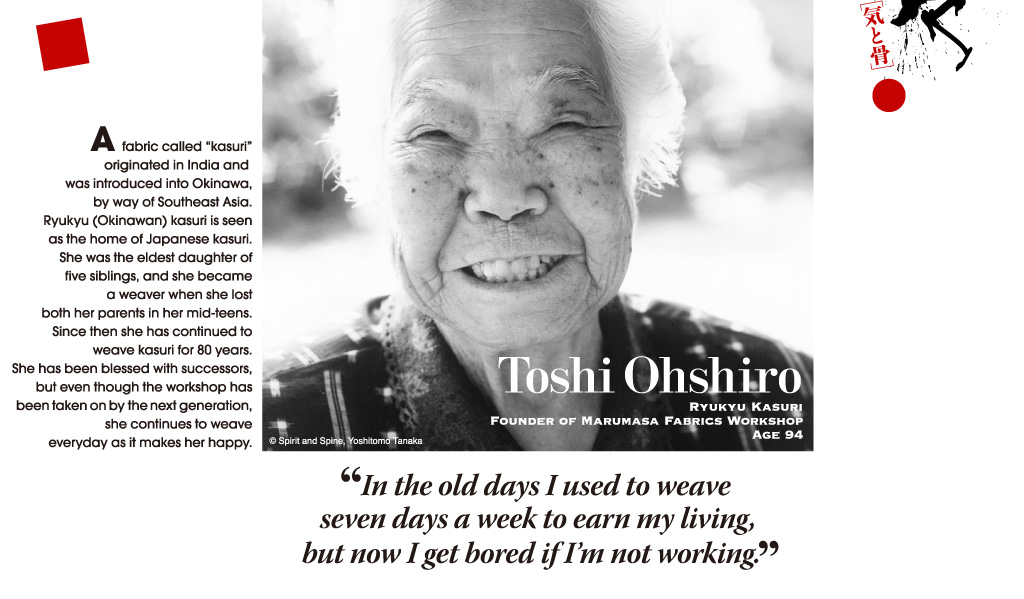As a girl that was born into a family that made Ryukyu kasuri, she unhesitantly became a weaver as soon as she graduated from elementary school. The Pacific War started when she was in her twenties, and she lived through the American forces invasion of Okinawa. After the invasion she was interned in Chinen. Her internment life involved living in shacks and being moved around from place to place, and she didn’t return to her hometown, which had become a battleground, until a year later. Nearly half of the townspeople of Haebaru had been killed in action. Due to the shortages of goods and materials after the war, she unraveled ropes and nets used for fishing and weaved the threads into kasuri.
She married Yukimasa and they ran a business manufacturing kasuri, as well as steam ironing called “yunoshi,” which involved cleaning the starch on fabrics. Based on a traditional design, the lengthwise threads and crosswise threads are prepared, starched and dyed so that the kasuri pattern remains, and the threads need to be delicately arranged and wound. As a working artisan with a thorough knowledge of all the many diverse processes that need to be done before weaving can begin, her existence is invaluable. Now the workshop has been confidently entrusted to her second son and his wife, who learned under her guidance, as well as her grandson, who grew up watching their weaving, and she lives peacefully with her oldest son and his wife.
Every day she wakes up at six o’clock and enjoys drinking her delicious green tea, which she credits as the secret key to her good health. Even in the house, she continues to weave on her machine and store up finished products. She precisely weaves the patterned fabric, without the aid of spectacles, using both hands and both feet at the same time. The smile of this hard working grandma, who raised four sons and one daughter and has been blessed with 13 grandchildren and even nine great grandchildren, shows that she doesn’t have a care in the world. Her happiness in weaving leads to the joy people show when they try on the clothes that she’s lovingly weaved.







































































































